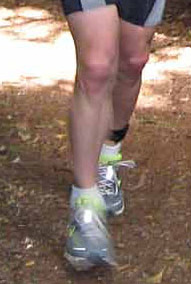 Marathon training is based on scientific principles and the ability for the human body to adapt. Training for a marathon doesn’t only train your legs to be able to run 26.2 miles it also has to train your heart, lungs, nervous system and fuel supply systems.
Marathon training is based on scientific principles and the ability for the human body to adapt. Training for a marathon doesn’t only train your legs to be able to run 26.2 miles it also has to train your heart, lungs, nervous system and fuel supply systems.
Running a marathon places considerable stress on all of your bodily systems and they must all be gradually trained to be able to cope with the miles of running ahead of them on race day.
A properly constructed marathon training schedule should therefore gradually work your body harder over the weeks of the programme. It should work to the principles of overload and recovery both of which are critical. Schedules should include long steady runs, short intense runs, mid distance runs, recovery runs and possibly some cross training.
A typical week’s schedule might look like this:
Monday
Rest day (to allow recovery from the long Sunday run)
Tuesday
Short recovery run (Still recovering from Sunday but keeping the legs moving)
Wednesday
Semi-long run (Starting to load the legs before tomorrow’s session)
Thursday
Short, intense run (an interval, hill or Fartlek session to stress the body)
Friday
Rest day (recovery from the intense session yesterday)
Saturday
Cross-training (keeping the training going but using different muscle sets so as not to overload your running muscles)
Sunday
Long run (the week’s most important run which trains your muscles, cardiovascular system, nervous system and energy systems to cope with endurance running)
Following these well proven principles has seen me finish many marathons and looking forward to finishing many more. All you need to do is adopt this same overload and recovery principle and you too can complete a marathon or achieve your personal best.
There's a Lot More Where That Came From… |
|
 |
This article is a condensed snippet taken from Nick Mitchell’s information-packed manual How to Run a Marathon. Your essential manual to enable you to run a successful marathon includes training schedules, advice on everything you can think of and lots you probably haven’t even thought of! You need this manual if you want to cross the marathon finish line with energy to spare, in a personal best finishing time and with a big smile on your face. More details here: VirtualHealthClub.com/marathon |
